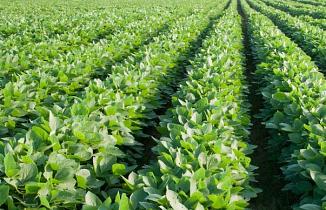Ancient crops may hold the key to sustainable farming, improving soil health
The impact of plant breeding and modern agricultural practices is reflected in soil health – and it isn’t looking good. In fact, scientists fear that an underground crisis threatens to undermine food production in the near future.
Jos Raaijmakers, a microbiologist from the Netherlands Institute of Ecology (NIOO-KNAW), suggests that the solution to this looming food and agricultural crisis can be gleaned from understanding ancient plant traits that had been lost through millennia of breeding.
Raaijmakers first studied ancient beans in 2011. He has since found that ancient beans had unique microorganisms clustered around their roots, unlike their domesticated counterparts. Raaijmakers thinks these microbes are beneficial for both plant and soil health.
Learning from ancient crops in building soil health
Raaijmakers and his team had collected soil samples from the roots of undomesticated beans in rural Colombia and studied the microbes and fungi clinging to the roots. From their samples, the researchers found that the beans had microorganisms that aren’t present in domesticated beans.
Furthermore, it appeared that domesticated beans planted in that same soil in rural Colombia carried none of those microorganisms found in the earlier soil samples. This led Raaijmakers to speculate that the microbes found in the earlier bean root samples might be important and beneficial for both the plant and the soil.
Raaijmakers has since been testing undomesticated species of potatoes and sorghum in field trials in Colombia, Ethiopia and the Netherlands. Using results from these field trials, Raaijmakers and his colleagues intend to understand and reintroduce beneficial ancient plant traits lost through millennia of plant breeding in the hopes of enhancing soil health. (Related: Can regenerative agriculture help the planet?)
Modern food crops need a “reboot”
Scientists are concerned that arable lands are shrinking at an unprecedented rate. There are a number of factors that contribute to this, including fragile modern crops, modern farming practices and plant breeding.
For instance, modern crops are becoming more and more dependent on fertilizers and pesticides due to the decades-long use of these products. In turn, commercial farms that make generous use of these chemical agents end up producing crops more fragile and prone to disease than their ancient forebears.
The long-term use of fertilizers and pesticides also affects soil health as the chemicals in them hurt microbial life. This, in effect, loosens the soil, thus making it more susceptible to erosion.
Furthermore, neglecting ancient but crucial techniques like crop rotation and practicing harmful ones like tilling and monocropping also contribute to poor soil health. Breeding nutrient-rich but disease-prone plants borne out of these practices then completes the cycle.
Wim van der Putten, a colleague of Raaijmakers and the head of the department of multitrophic interactions in NIOO-KNAW, notes that their ecological research indicates a sort of error in the current state of agriculture.
Fertile soil is a finite resource and modern farming practices are hurting this resource to a large extent. It also does not help that the solutions to these problems are no better than band-aid solutions, such as using chemical fertilizers to replace lost soil nutrients.
Experts point out that poor attention to soil health and harmful agricultural practices are more than likely to endanger food security in the near future as the global population continues to increase.
It appears that modern food crops are in need of an urgent reboot and these problems must be tackled at the root, according to Van der Putten.
To this end, researchers from his institute are conducting field trials and tests in greenhouses. The idea is to harness the traits and properties of ancient crops to create modern ones that are not dependent on the extensive use of pesticides and fertilizers.
The researchers hope that nurturing crops that possess these traits might also benefit the soil as a result.
Raaijmakers also suggests looking for ancient plant traits that are linked to the unique microbes found in ancient crops and then replicating those traits in modern crops through plant breeding.





